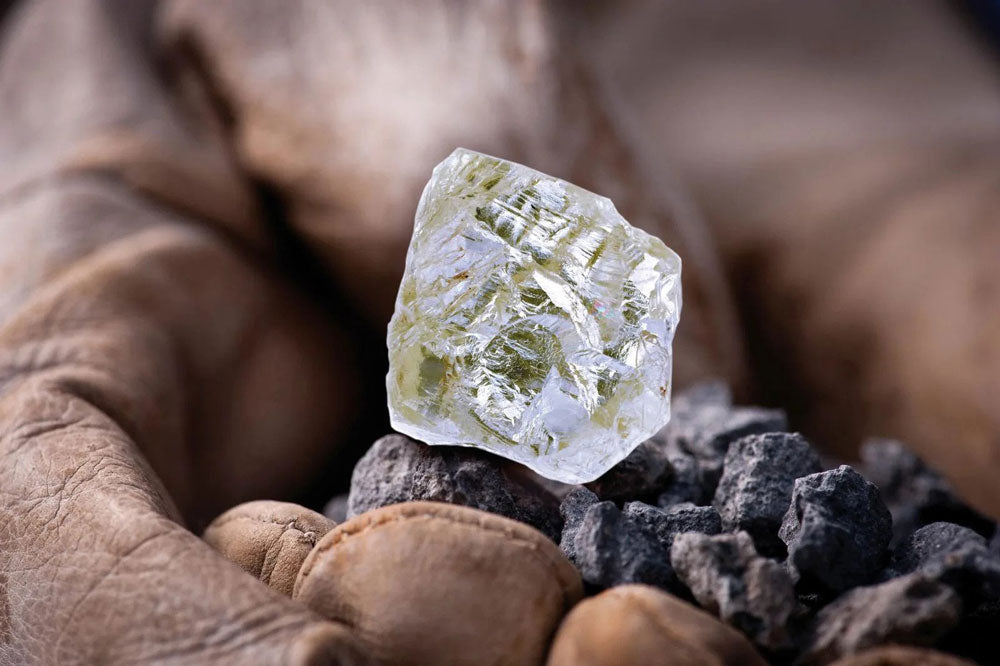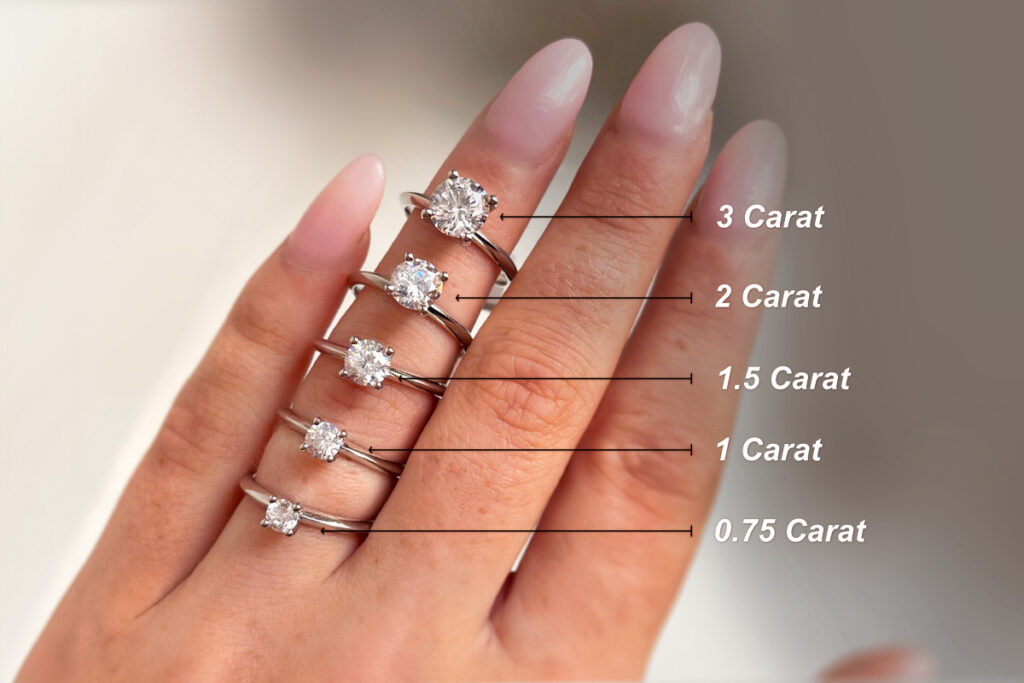Table of Contents
What Are Ethical Diamonds?
Ethical diamonds are gemstones mined, sourced, and sold in ways that respect human rights and the environment. Unlike traditional diamonds, which can sometimes be tied to environmental degradation, labor exploitation, and conflict, ethical diamonds follow responsible mining practices. By prioritizing fair wages, safe working conditions, and environmental preservation, ethical diamonds help promote sustainable practices within the gemstone industry.
While the demand for ethical diamonds grows, it’s crucial to understand what makes them distinct from conventional diamonds. Look for certifications and labels, such as those from the Kimberley Process or the Responsible Jewellery Council, which certify that a diamond has been ethically sourced.
Why Ethical Diamonds Matter
The impact of the diamond industry on the environment and local communities has raised significant ethical concerns. Ethical diamonds address these issues by supporting transparent, responsible sourcing practices. Conventional diamond mining can disrupt local ecosystems, cause deforestation, and even lead to the displacement of entire communities. Ethical diamonds, however, prioritize minimal environmental impact and support the social welfare of mining communities.
By choosing ethical diamonds, consumers contribute to fair trade practices, reduce environmental harm, and support industries that uphold ethical standards. Purchasing ethical diamonds empowers consumers to make positive, impactful choices.
Different Types of Ethical Diamonds
Ethical diamonds come in various forms, each with unique benefits. Here are some of the most common types:
1. Conflict-Free Diamonds
Conflict-free diamonds are sourced from regions free from conflict or armed forces’ control. They follow stringent guidelines set by the Kimberley Process, ensuring they’re not funding violence or exploiting workers. This certification verifies that the diamond has not contributed to human rights abuses.
2. Recycled Diamonds
Recycled diamonds are pre-owned stones that have been polished, re-cut, or redesigned for a new setting. These ethical diamonds avoid the environmental impact associated with new mining. By reusing existing gems, recycled diamonds are a sustainable and eco-friendly choice for consumers looking for an ethical diamond.
3. Lab-Grown Diamonds
Lab-grown diamonds, also known as synthetic diamonds, are created in a controlled lab environment. These ethical diamonds have the same physical and chemical properties as mined diamonds, but without the associated environmental and social concerns. lab created diamonds are a popular ethical choice because they are more affordable, sustainable, and don’t contribute to the harmful practices linked to mining.
The Environmental Impact of Ethical Diamonds
One of the primary reasons consumers choose ethical diamonds is the reduced environmental impact. Traditional diamond mining is resource-intensive, often involving heavy machinery, deforestation, and significant energy use. This process can lead to soil erosion, habitat destruction, and water contamination in mining regions.
Ethical diamonds, particularly lab-grown and recycled varieties, offer a more sustainable alternative. Lab-grown diamonds, for example, require less land use and minimal energy compared to traditional mining. Similarly, recycled diamonds use existing resources, reducing the need for additional mining activities and helping to preserve natural ecosystems.
The Social and Economic Benefits of Ethical Diamonds
Ethical diamonds also provide social and economic benefits by promoting fair labor practices and supporting local communities. Many ethical diamond companies ensure workers receive fair wages and safe working conditions, helping reduce exploitation and poverty in mining regions. Ethical diamonds create a positive impact by establishing partnerships with local communities, investing in health, education, and infrastructure.
This approach not only benefits the workers but also strengthens local economies, giving communities more control over their resources and welfare. By choosing ethical diamonds, consumers are indirectly supporting these sustainable and community-centered efforts.
How to Ensure Your Diamond is Ethical
With the rise in demand for ethical diamonds, many brands have started using misleading labels and greenwashing tactics. Here are some ways to ensure that your diamond is genuinely ethical:
1. Look for Certifications
Certifications like the Kimberley Process, Fairtrade Gold Standard, and the Responsible Jewellery Council are good indicators that a diamond has been ethically sourced. These certifications verify that the diamond has been mined, sourced, and sold under ethical standards.
2. Research the Company
Some companies are more transparent about their sourcing practices than others. Check the company’s website for information on their sourcing and production practices. Companies committed to ethical diamonds will often disclose their supply chains, including the origin of the diamonds and the practices involved.
3. Choose Lab-Grown or Recycled Options
Lab-grown and recycled diamonds are among the most ethical choices because they avoid many of the environmental and social issues associated with mining. When buying ethical diamonds, consider choosing a lab-grown or recycled stone, as these options are more sustainable and eco-friendly.
The Future of Ethical Diamonds
The market for ethical diamonds is expected to grow as consumers continue to prioritize sustainability and ethical practices. Innovations in technology are making lab-grown diamonds more accessible, affordable, and high-quality, offering a reliable alternative to mined stones. Additionally, efforts to improve the transparency of diamond supply chains are underway, ensuring that ethical diamonds become the standard in the industry.
As consumer awareness grows, so will the pressure on companies to adopt ethical sourcing practices. The future of ethical diamonds looks promising, with more brands committed to environmentally responsible practices and social responsibility.
Conclusion: Making a Positive Impact with Ethical Diamonds
Choosing ethical diamonds is a powerful way to support sustainable practices, protect the environment, and ensure fair treatment for workers. Whether you opt for lab-grown diamonds, conflict-free stones, or recycled options, each choice contributes to a more responsible and conscientious diamond industry.
By understanding what makes a diamond ethical, researching companies, and looking for certifications, you can make an informed decision that aligns with your values. Ethical diamonds are more than just beautiful gemstones—they represent a commitment to a brighter, more sustainable future.





